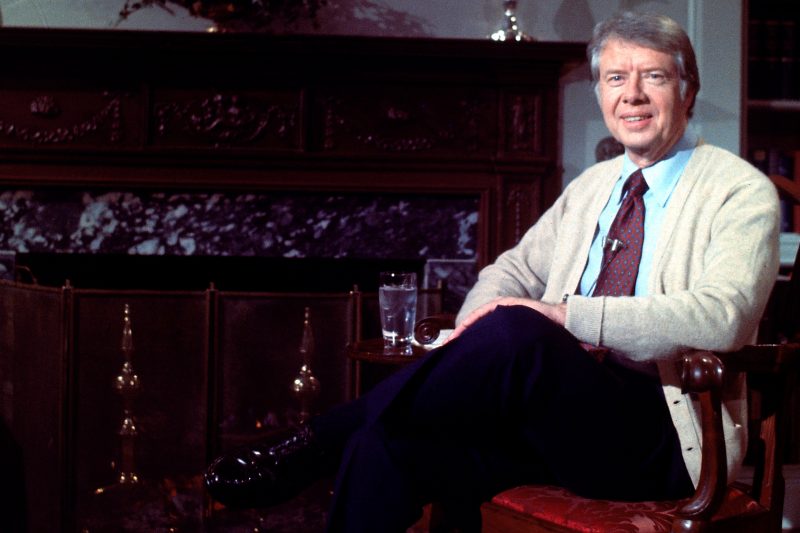President Jimmy Carter’s decision to wear a sweater in a televised speech may seem like a simple fashion choice, but it ignited a cascade of reactions that reverberated throughout the political landscape for years. On a cold evening in 1977, during the energy crisis, Carter addressed the nation, advocating for energy conservation by wearing a simple gray cardigan. This seemingly innocuous act of donning a sweater triggered a strong backlash from opposing Republicans, who saw it as a symbol of weakness and ineffectiveness.
The fundamental principles that underpin this backlash revolve around the perception of strength and leadership associated with the office of the President. In American political culture, the image projected by the President holds significant weight and symbolism. Presidents are expected to exude power, authority, and decisiveness to inspire confidence and assurance in the population. By choosing to appear in a humble sweater, President Carter clashed with these traditional expectations, leading to a perception of him as meek and lacking in the necessary commanding presence.
The backlash from Republicans against Carter’s choice of attire extended beyond mere sartorial critique. It became a rallying point for broader criticisms against his policies and leadership style. The sweater incident was seized upon as a visual representation of Carter’s perceived failings in managing the economy and foreign affairs. Republicans used the image of the sweater as a potent symbol to paint Carter as out of touch, weak, and incompetent, further deepening the divide between the two political parties.
The Republican backlash against Carter’s sweater encapsulates the power of visual symbolism in politics and how seemingly trivial actions can have significant repercussions. It also highlights the role of perception and image in shaping public opinion and political discourse. The sweater incident serves as a poignant example of how a simple fashion choice can become a focal point for broader critiques and narratives in the contentious arena of American politics.
As the years have passed, the image of President Carter in his sweater has endured as a poignant reminder of the complexities of political symbolism and the enduring impact of seemingly inconsequential actions. The sweater incident stands as a testament to the enduring legacy of one of the most iconic moments in American political history, serving as a cautionary tale of the power of image in shaping political narratives and public perceptions.


























